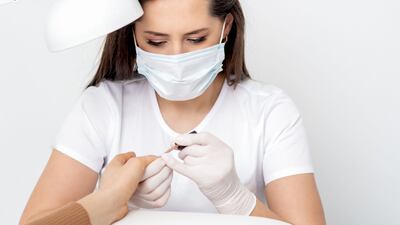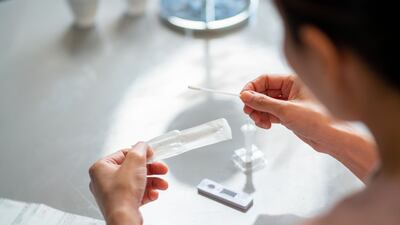NGOs
HBW Insight presents a new series profiling regulatory affairs specialists working in or supporting the consumer health and cosmetics industries. In this first installment, we speak to AESGP's Christelle Anquez-Traxler and Oliver Hartmann, senior regulatory science & strategy lead, and regulatory & legal affairs director respectively.
A draft declaration to be presented to the UN General Assembly in September suggests that a “lack of regulation of over-the-counter use of antimicrobials” is one of the “drivers of antimicrobial resistance.” Industry, however, insists that misuse and over-prescription of antibiotics are the primary drivers of AMR, and is advocating for the text to be amended accordingly.
Consumer health, particularly food supplements that make unauthorized medical or health claims, has been a key area of focus for the UK Advertising Standards Authority's recently introduced Active Ad Monitoring system, which captures ads by relevant advertisers from a range of social media platforms, and applies machine learning algorithms to identify and flag likely non-compliant ads, which are then sent to experts to review and act on. This infographic highlights recent ASA rulings against ads for supplements claiming to treat anxiety and stress, menopause, autism/ADHD and weight loss, which were flagged by AI.
Unauthorized medical or health claims for dietary supplements are a key focus area for the UK advertising regulator's new AI-powered Active Ad monitoring system. HBW Insight speaks to the ASA’s head of data science, Adam Davison, in this exclusive interview to find out more about the organization's journey towards pre-emptive regulation.
The UK's consumer healthcare industry association, PAGB, sets out six priorities for the new UK government, following the landslide victory of the Labour Party in the recent general election. One of these priorities is driving Rx-to-OTC switch - something that the UK public also wants, according to the association's latest Self-Care Census, published to mark International Self-Care Day 2024.
“Despite there being a common regulatory framework for medicinal products in the European Union, there remains a diversity of approaches between EU member states with regards to how they regulate access to nonprescription medicines,” notes AESGP's Klavdija Kmetič, as the association updates its OTC ingredients directory.
When it comes to online consumer health product advertising, complying with regulations, ensuring that content is factually correct and being transparent are some of the key principles that companies should adhere to, recommends AESGP in a recently published position paper.
The Association of the European Self-Care Industry's 60th Annual Meeting in Brussels, Belgium, opens with a rousing call to action from president Jonathan Workman. Looking to the upcoming EU elections, Workman urges industry to push for widening access to OTC medicines through switch, digital and sustainable investment, improved health literacy and regulatory flexibility.
The Association of the European Self-Care Industry gives EU regulators a to-do list of targeted reforms to save the Medical Devices Regulation from the scrapheap.
The regulation “is clear, as is the Court’s order” rejecting CRN’s motion for preliminary injunction against imposition of the regulation, says US district Judge Andrew Carter in order denying the trade group’s request for clarification of New York regulation.
Women’s Voices for the Earth continues to call attention to cosmetic ingredients’ potential health impacts on users including salon workers, while pushing the Cosmetic Ingredient Review to consider a wider variety of safety information in its assessment work.
The EU Parliament's Environment, Public Health and Food Safety committee takes a compromise position with regards to the Packaging and Packaging Waste Directive. Medicines and medical devices should be exempt, but only until 2035, at which point the European Commission should check whether the development of materials and the recycling process have progressed, and may adjust this exemption accordingly.
A report by AESGP and IQVIA Consumer Health finds that self-care medical devices account for a significant proportion of Europe's OTC market, and as a category is growing rapidly. However, only by “retaining the same favorable market conditions, notably in terms of efficiency, transparency, predictability and innovation” as under previous medical device regulations can this category continue to thrive, they argue.
The consumer health industry will “remain a cornerstone of the association,” BAH director general Hubertus Cranz told HBW Insight.
The Association of the European Self-Care Industry celebrates its 60th birthday this year. In this episode, we catch up with AESGP director general, Jurate Švarcaite, to find out how the association will mark the occasion, including at this year’s Annual Meeting in Brussels in June. AESGP Annual Meetings are an excellent way to find out what the key issues and trends are impacting the European consumer health industry, and this one will be no different. We talk through some of the key themes of this year’s conference. Sustainability continues to be a mega-trend, closely followed by digitalization and artificial intelligence. With its wide-ranging footprint across OTC medicines, food supplements and self-care medical devices sectors, the consumer health industry is facing an avalanche of regulations, and the AESGP continues to be an effective advocate for its stakeholders, alongside adjacent industry partners.
This week, AliveCor's patent infringement lawsuit against Apple came to an end; industry stakeholders submitted comments to the FTC on the right to repair; Cardinal Health and Percussionaire announced recalls; and the IMDRF announced a March meeting in Washington, DC.
UK doctors are calling for the reclassification of oral emergency hormonal contraceptives (EHCs) from pharmacy (P) medicine status to general sales list (GSL) status in the country. Manufacturer Maxwellia, which markets levonorgestrel-based emergency contraception, LoviOne, says it "has what it takes to get this over the line" with the UK Medicines and Healthcare products Regulatory Agency.
The Pharmaceutical Group of the European Union is calling on the Commission and EU member states to find “workable solutions” that would allow commonly used OTC antimicrobials to continue to be available to patients without a prescription.
Manufacturers call for a reasonable implementation timeline to align their procedures, tools and infrastructure for Eudamed readiness and for various pre-conditions to be met.
US International Trade Commission found patents had mixed effect on consumer access to diagnostics and therapeutics during COVID-19 pandemic. Trade group AdvaMed says findings demonstrate patent waiver programs aren’t needed for COVID-19 diagnostics.
ADVERTISEMENT



















